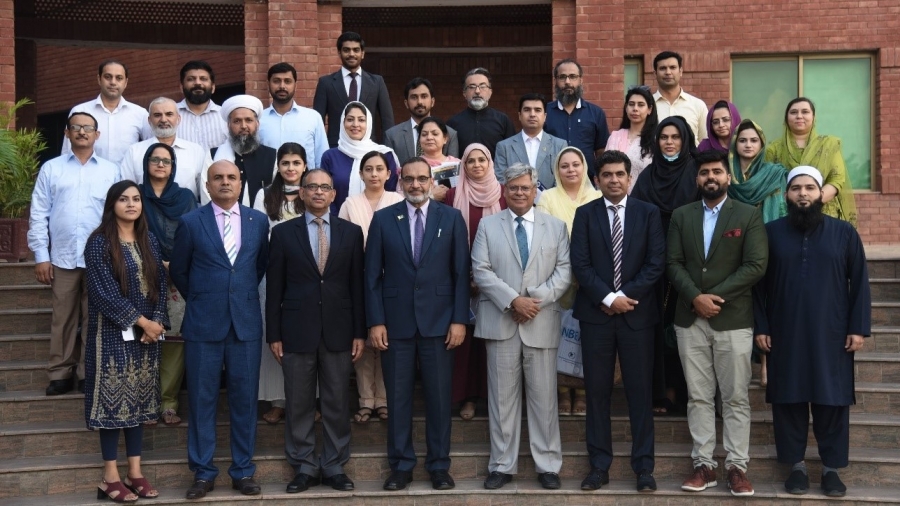Workshops
Workshop - “Faculty Development of Business School”

Venue: Lahore
|
Workshop - “Faculty Development of Business School” |
|||
|
Introduction: |
|||
|
The faculty is the single most important strategic resource of a business school. The quality and commitment of the faculty are important ingredients of a dynamic institution of higher learning. The faculty development program highlights the pivotal role of the faculty. Also, it offers suggestions on the three main responsibilities of a faculty member; teaching, research and service. This two day program offers guidelines for planning and development of faculty members and concludes with some thoughts on evaluation of the impact. |
|||
|
Course Contents: |
|||
|
1. The central role of the faculty. 2. The essential components of teaching excellence. 3. Developing a research culture and enhancing research productivity. 4. Planning for faculty hiring, reward, retention and development. 5. NBEAC standards of faculty, and research and development. 6. The impact of faculty on the students, business school brand and society. |
|||
|
Learning Outcomes: |
|||
|
1. Understand the role of the faculty in a “Business School. 2. Review the pedagogy and methodology in various degree programs to enhance the excellence in teaching. 3. Recognize the value of culture and resources to strengthen the portfolio and strategic research priorities. 4. Plan the faculty requirements for the strategic advantage of a business school. 5. Evaluate the impact of faculty contributions towards achieving accreditation and overall advancement of business school. |
|||
|
Who Should Attend: |
|||
|
Deans, Directors, Department Chairs, Associate Deans, Degree Programs Directors and Senior Business School Faculty Members. Ideally two to three persons from same institution should attend this program, including at least one senior faculty member. |
|||
|
Trainers: |
|||
|
|||
|
Notes: |
|||
** If unforeseen circumstances occurs during the workshop and one day before the scheduled workshop, NBEAC will not refund the registration fee. |
|||
NBEAC in collaboration with University of Central Punjab conducted two days training on Faculty Development of a Business School on 23rd and 24th of August 2022. The workshop was conducted by Dr. Ali Saeed- Rector TMUC Islamabad and Dr. Shaukat Brah- Former Rector and Dean KSBL Karachi. The two days program focused on the guidelines for planning and development of faculty members as faculty is the main pillar and single most important strategic resource of a business school.
Major areas of discussion were the central role of faculty, the essential components of teaching excellence, developing a research culture and enhancing research productivity, planning for faculty hiring, reward, retention and development along with NBEAC standards of faculty, research and development and the impact of faculty on the students, business school brand and society.
Key takeaways of the programs were understanding of role of faculty in a business school, enhancement of excellence in teaching, recognition of the value of culture and resources to strengthen the portfolio and strategic research priorities, planning of faculty requirement and evaluation of impact of faculty contributions towards achieving accreditation and lastly the advancement of business school.
The program was well attended and around 35 participants including Deans, Directors, Department Chairs, Associate Deans, Degree Programs Directors and Senior Business School Faculty Members were present.
Powered by iCagenda
About NBEAC
NBEAC has three main functions: accreditation, training and networking. In its accreditation function, it develops and implements standards to improve the quality of business education in Pakistan. In its training function, it provides opportunities to faculty and managers to learn about quality standards and related matters. In its networking function, it provides a forum for business education professionals to learn from each other through conferences and seminars.


